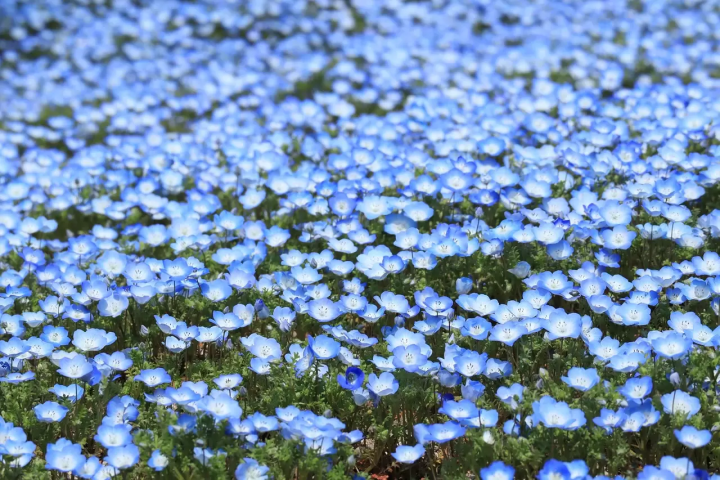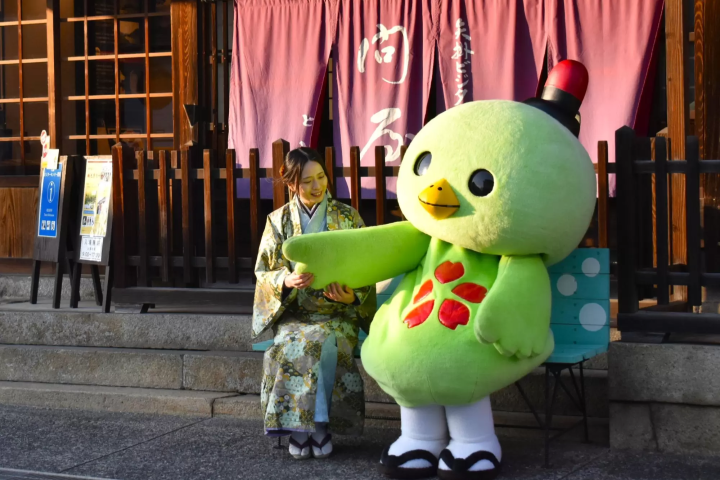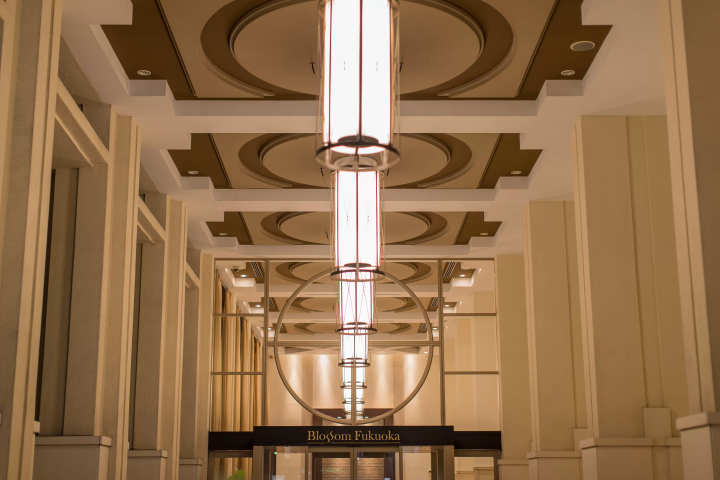Route to Snow Monsters at Zao Onsen Ski Resort in Yamagata

Zao Onsen bustles with many tourists from Japan and abroad. This time, we will introduce a sightseeing route to one of the famous sightseeing spots in Zao Onsen, the “Juhyo”. (Featured image provided by Zao Tourism Development Co., Ltd.)
What is Juhyo

Rime is a very rare phenomenon that can only be generated under certain weather conditions. Zao's frost-covered trees are formed when the coniferous Aomori Todomatsu (Aomori Todomatsu) is covered with snow and ice and grows upwind. The peak of frost-covered trees is usually from late January to late February. (Image provided by: Zao Onsen Tourism Association)
Recommended clothing for viewing frost-covered trees
The area where you can see frost-covered trees is cold, so warm clothes are recommended. There is a lot of snow, so it is easier to walk with waterproof and long shoes. Check the weather in Zao in advance and be well prepared.
Referral route
There are two ways to get to Zao's frost-covered trees: direct ropeway rides and lift transfers while enjoying the slopes. (From Yamagata City Tourism Association HP: http://www.kankou.yamagata.yamagata.jp/zao/jyuhyo )
This time, we will introduce the route from Zao Onsen Bus Terminal to Jizo Sancho Station, where the frost-covered trees are located, using a "direct ropeway" pattern.
starting point

Exterior view of Zao Onsen Bus Terminal. You can take a bus from Yamagata Station to the bus terminal.
*To get on the bus bound for Zao Onsen Bus Terminal at Yamagata Station, board from bus stop 1 in front of Yamagata Station. However, buses bound for Niigata and Sendai also stop at this bus stop, so be careful not to get on the wrong bus. Apparently, there are many tourists who mistake the bus for Zao Onsen and get on the bus bound for Sendai.
Zao Onsen Bus Terminal ⇒ Zao Ropeway (about 10 minutes on foot)
Exit Zao Onsen Bus Terminal and turn right.

If you go left at this forked road, you will Takayu-dori street-dori, where the public baths and Sukawa Onsen Shrine are located. This time, go straight on the road on the right. This article introduces Takayu-dori street.

Although it is snowing, the sidewalks are well maintained and easy to walk.

As you walk along the road, you will see the convenience store Lawson Yamagata Zao Onsen on your right hand side.

After a short walk from Lawson, you will see the Zao Chuo Ropeway on your left.

After passing the Zao Chuo Ropeway, continue straight ahead.

After going up a gentle slope, you will see Zao Meihinkan Notoya on your right. We sell souvenirs of Zao and rent skis, snowboards, and wear.
Zao Ropeway Sanroku Station ⇒ Zao Ropeway Juhyo Kogen Station (approximately 7 minutes boarding time)

After passing the Zao Meihinkan Notoya, you will arrive at the Zao Ropeway Sanroku Station. This day was a weekday, but it was crowded with many people, and the parking lot was full.

Get on the ropeway from Zao Sanroku Station.
[Main facilities at Zao Sanroku Station]
・Coin lockers (paid)
·window
・Ticket vending machine
・Web lift ticket vending machine
·Bathroom

At the entrance of the station, there is a business information posted, and the weather conditions near each station on that day are also listed. Depending on the situation, you can check here and consider changing the itinerary.

Purchase a round-trip ticket from Zao Sanroku Station to Jizo Sancho Station in order to head to Jizo Sancho Station, where the frost-covered fields are located. If you buy a ticket locally, it will be issued at this ticket vending machine. Tickets will be issued at the ticket window if payment is not made by cash, credit card, or QR code. On holidays, it may take 1 to 2 hours to purchase a ticket.
[What can be purchased at the ticket vending machine at Zao Onsen Ski Resort Sanroku Station]
・Round-trip ticket to Jizo Sancho Station
・Round-trip ticket to Juhyo Kogen Station
・Each one-way ticket
[Available payment methods]
·cash
・Credit card (VISA, JCB, MasterCard, American Express, etc.)
・Electronic money/QR payment (Suica, QUICPay, PayPay, etc.)

After purchasing a ticket, head to the platform. In addition to tourists, skiers and snowboarders who use the slopes ride the gondola together. It takes about 7 minutes to transfer to Juhyo-Kogen Station.

The inside of the gondola was crowded, but I could see the scenery from the window. In addition to Japanese, the announcements inside the train are also in English. The image is the view from the gondola.
Zao Ropeway Juhyo-Kogen Station ⇒ Zao Ropeway Jizo Sancho Station (about 10 minutes ride)

I arrived at Juhyo Kogen station. From here, transfer to the gondola and head to Jizo Sancho Station.
[Main facilities at Juhyo Kogen Station]
·window
·Bathroom
・Restaurant “Tomato no Mori” (only open during the winter ski season)

After getting off the gondola, there is a waiting room and a restroom.

communication passage. It wasn't snowing.

Take the gondola bound for Jizo Sancho Station.

After passing through the ticket gate, the staff will take a picture for you. You can purchase the photos you took when you get off the bus on the way back.

Ride the designated gondola as instructed by the staff. There is also a gondola with a cute red exterior and a heart-shaped window. It is said that this gondola is based on the motif of the "Sacred Place for Lovers". The color of the gondola you get to ride depends on your luck. It takes about 10 minutes to get to Jizo Sancho Station.
Jizo Sancho Station ⇒ Zao Jizoson and Juhyo viewing

I arrived at Jizo Sancho Station. It's much colder than up to Juhyo Kogen Station.
[Main facilities at Jizo Sancho Station]
·window
·Bathroom
・Restaurant "Restaurant Sancho" (open all year round 8:30-16:00)

After getting off the gondola and exiting the ticket gate, you can take the stairs leading up to the terrace. There is also a restaurant and restrooms.

The entrance to the top of the restaurant. Yamagata specialty ball konjac is also on sale.

I immediately left Jizo Sancho Station.
When you leave Jizo Sancho Station, you can see frost-covered trees.

The weather was bad that day, so I wasn't able to take clear pictures...

When the weather is nice, you can see such beautiful frost covered trees! (Image provided by Zao Ropeway Co., Ltd.)
Zao Jizoson
At Jizo Sancho Station, there is "Zao Jizoson", one of the "Three Great Gods of Zao".
This article summarizes the three major gods of Zao.

Follow the signboards to reach Zao Jizoson. Walk about 30m. The frost covered trees course on the left allows you to ski or snowboard down the slopes, and you can experience the ice covered trees up close.

Arrived. Zao Jizoson is a Jizo statue that wards off disasters and fulfills various wishes.
In winter, the Jizo statue is buried up to the shoulders due to the snow, but in the summer you can see the whole statue.
summary
The above is the route guide to the frost-covered trees. You can fully enjoy the winter scenery other than frost-covered trees, so if you come to Yamagata City for sightseeing, why not visit it?
Useful information for sightseeing such as daily weather and lift operation information is uploaded on Facebook of each ropeway. Must check!
Zao Ropeway
https://ja-jp.facebook.com/zaoropeway/
Zao Central Ropeway/Zao Sky Cable
Yamagata City is the prefectural capital of Yamagata Prefecture. Surrounded by mountains, the city offers beautiful scenery throughout the four seasons. Famous sightseeing spots include "Zao", which is popular for its frost-covered trees and hot springs, and "Yamadera", a place related to Basho Matsuo. In terms of food culture, dishes that make use of Yamagata's abundant ingredients, such as ``Yamagata imoni'', ``cold ramen'', ``dashi'' and ``ball konjac'', have been passed down. Yamagata City has many images of such nature and history, but in fact, there are plenty of cafes and restaurants, and there are many places where you can relax. On this page, we will post recommended spots and articles to introduce the attractions of Yamagata City, such as popular spots, hidden attractions, and delicious restaurants, in more detail and in an easy-to-understand manner! (Images and videos on this page: Provided by Public Relations Division, General Affairs Department, Yamagata City)
The contents on this page may partially contain automatic translation.







































